Premium Only Content
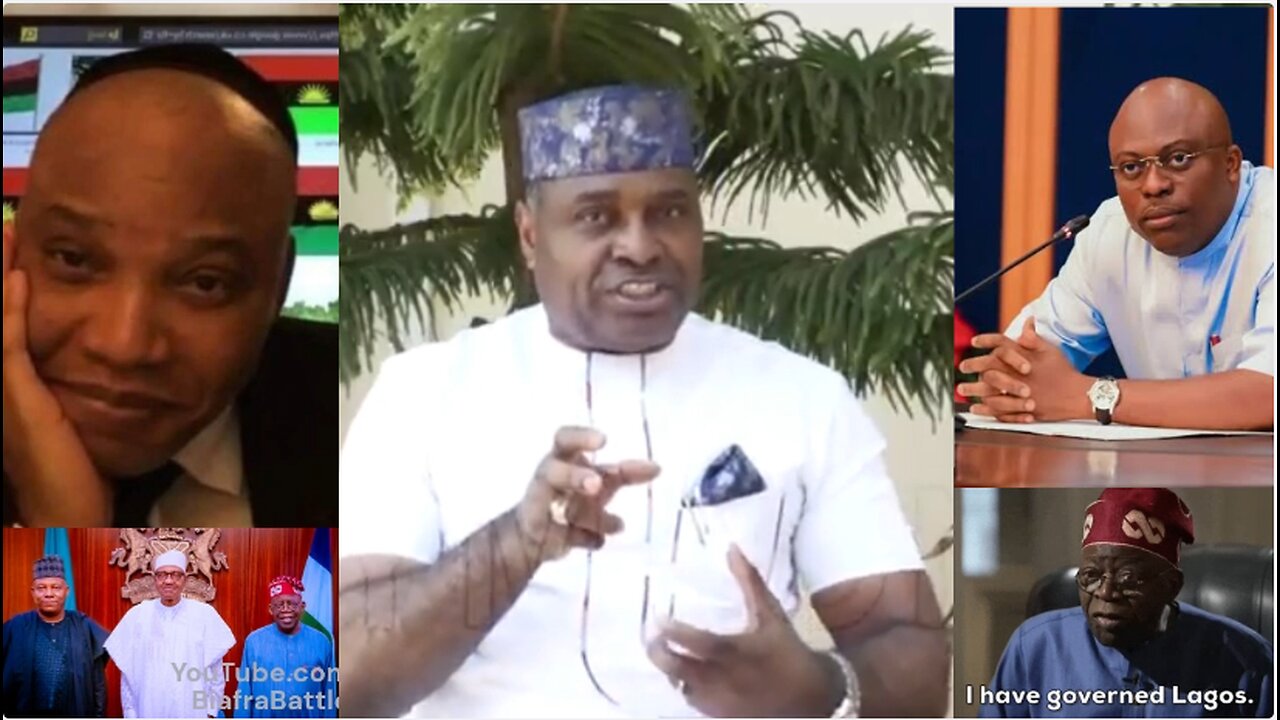
Mr Okonkwo Slams Tinubu: Declaring Martial Law in Rivers State is Undemocratic & Treasonous!
Okay viewers! Grab your seat while we dive into political analysis and Summary as Kenneth Okonkwo Says We Are Now In A FULL BLOWN Dictatorship, Action Against Fubara Is Treasonable.
Kenneth Okonkwo condemns Nigeria's president for declaring martial law in Rivers State, calling it undemocratic and treasonous.
Kenneth Okonkwo asserts President Tinubu's actions in Rivers State resemble a declaration of martial law.
- Okonkwo clarifies that the president did not declare a state of emergency, as required constitutional conditions were not met.
- He argues that the removal of elected representatives by the president is unconstitutional and likens it to a coup.
Okonkwo claims Tinubu's actions resemble a dictatorship undermining constitutional authority.
- Tinubu allegedly usurped legislative power by allowing a sole administrator to create laws through regulation.
- He suspended multiple sections of the constitution, declaring martial law without constitutional authority, undermining elected representatives.
Kenneth Okonkwo critiques presidential overreach and emphasizes dialogue over force.
- Okonkwo argues that the National Assembly's laws do not justify the removal of elected officials, highlighting the importance of respecting democratic processes.
- He contrasts past leadership responses to crises, advocating for negotiations as a more effective method of restoring order and peace.
Kenneth Okonkwo criticizes recent state of emergency actions as dictatorial.
- Okonkwo compares current actions to past instances, emphasizing that former leaders declared emergencies without removing elected officials.
- He highlights that Obasanjo's restraint from removing opposition governors during emergencies demonstrates a respect for democratic processes.
Okonkwo argues Nigeria is in a dictatorship, defying court rulings.
- He criticizes the government's lack of accountability in arresting political figures while ignoring violent acts against loyalists.
- Okonkwo claims the current administration is undermining the Supreme Court's authority regarding state budget appropriations.
Kenneth Okonkwo condemns Tinubu's actions as authoritarian and treasonous.
- Tinubu's military deployment and unilateral decisions violate Supreme Court rulings and constitute impeachable offenses.
- The attempt to override the Supreme Court undermines democracy and legality, threatening the governance of Rivers State.
Kenneth Okonkwo critiques the legality of recent political actions in Nigeria.
- He argues that a true state of emergency has not been declared according to legal standards.
- Okonkwo emphasizes that legislative votes must be recorded in writing, dismissing voice votes as insufficient evidence.
Legislative transparency is vital to democracy and accountability.
- Electronic voting should replace voice voting to ensure constituents know their representatives' decisions.
- The legislature holds the key power in democracy; citizens must hold them accountable for governance failures.
Kenneth Okonkwo warns of a dictatorship and treason in Rivers State.
- Allegations of corruption suggest financial incentives influenced votes against elected representatives.
- Okonkwo emphasizes that undermining democracy threatens future electoral integrity and governance.
Kenneth Okonkwo warns of a transition to dictatorship over emergency powers.
- He argues that declaring a state of emergency is unwarranted as Nigeria faces no internal threats or war.
- Okonkwo believes that emergency powers used under false pretenses could signify a loss of democratic governance.
The Key Insights for Kenneth Okonkwo Says We Are Now In A FULL BLOWN Dictatorship, Action Against Fubara Is Treasonable.
MARTIAL LAW VS. STATE OF EMERGENCY
- Kenneth Okonkwo emphasizes that the president's actions in Rivers State do not constitute a legitimate state of emergency, but rather a declaration of martial law.
- According to Okonkwo, a state of emergency can only be declared under specific constitutional conditions, which he argues have not been met in this case.
- He cites the Nigerian Bar Association's stance that the necessary legal conditions for a state of emergency were not satisfied, rendering the president's declaration null and void.
CONSTITUTIONAL VIOLATIONS
- Okonkwo asserts that the president's declaration undermines the constitutional framework that mandates governance through elected representatives.
- He highlights the Supreme Court's ruling that any act of governance not supported by law is a nullity, suggesting that the president's actions are unconstitutional.
- The president's suspension of multiple constitutional sections to impose martial law is described as a breach of the rule of law, equating it to treason.
PRECEDENTS AND COMPARISONS
- Drawing parallels to historical instances in South Korea, Okonkwo warns that similar actions by the Nigerian president could lead to significant political consequences, including removal from office.
- He recalls how former Nigerian President Goodluck Jonathan faced a crisis without resorting to undemocratic measures, preferring dialogue over military intervention.
- Okonkwo argues that legitimate governance should prioritize negotiation and collaboration with elected officials rather than unilateral military actions.
IMPACT ON DEMOCRACY
- The declaration of martial law is framed as a direct threat to Nigeria's democratic principles, with Okonkwo urging citizens to recognize and resist such overreach.
- He warns that allowing the president to remove elected representatives sets a dangerous precedent, potentially enabling future leaders to misuse emergency powers for political gain.
- Okonkwo stresses the importance of upholding the constitution and protecting the democratic process to prevent the establishment of a dictatorship.
LEGISLATIVE RESPONSIBILITY
- He critiques the National Assembly's role, suggesting it has failed to uphold its responsibilities by permitting the president's actions without proper legal scrutiny.
- Okonkwo insists that the legislature must assert its authority to check the executive branch to preserve democracy.
- He calls for accountability among elected officials, emphasizing that the legislature's failure to act could lead to irreversible damage to Nigeria's democratic system.
-
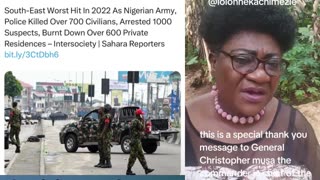 7:13
7:13
Biafra Battle Cry
5 days agoSouth-East Under Siege: 700 Killed, 600 Homes Burned Intersociety Report Exposes 2022 Atrocities
18 -
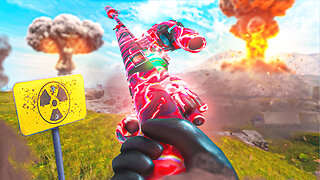 LIVE
LIVE
GritsGG
5 hours agoRumble Customs! 3515 Ws! 🫡!
417 watching -
 38:39
38:39
Grant Stinchfield
3 hours ago $1.06 earnedHow Local TV News LOST Its Soul
10.8K2 -
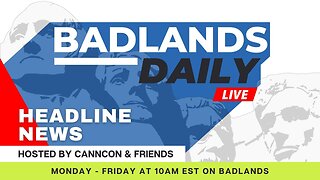 2:09:51
2:09:51
Badlands Media
13 hours agoBadlands Daily: September 1, 2025
44.4K31 -
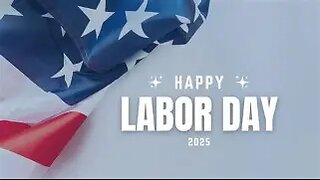 1:12:35
1:12:35
theoriginalmarkz
4 hours agoCoffee with MarkZ. 09/01/2025
43.2K12 -
 2:59:48
2:59:48
Wendy Bell Radio
9 hours agoSunday, Bloody Sunday
127K250 -
 1:10:02
1:10:02
crgoodw1n
3 hours agoHAPPY LABOR DAY! Tactical shoosting W/ @BenderOdoyle Ask about !12hr !freshenup !discord
14.7K2 -
 LIVE
LIVE
ENEMYOFDEATH2012
15 hours agoGod of War Playthrough Pt. 2 and some Fortnite
15 watching -
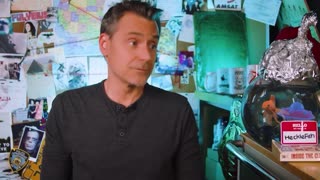 4:47:50
4:47:50
The Why Files
3 days agoCOMPILATION: UFOs and Aliens Vol.2 | They are NOT our friends
95.8K54 -
 1:33:46
1:33:46
BubbaMatt
4 hours ago $0.08 earnedMafia Definitive Edition Playthrough - Part 1
5.15K